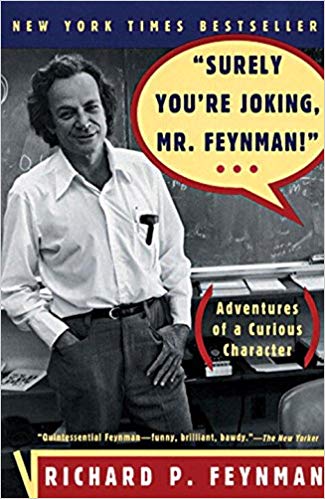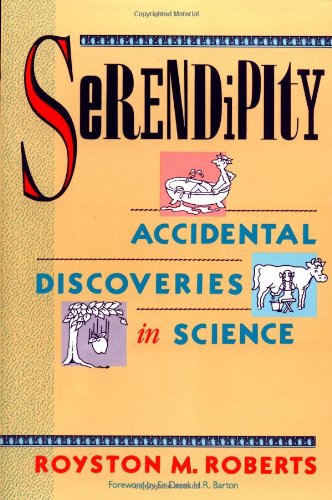Miscellaneous Writings on Science
A variety of books on personal experiences in science, history of science, and other books that just didn't fit in a clear category.

Surely You're Joking, Mr. Feynman! by Richard Feynman
Richard Feynman is one of my heroes I'd wish I'd known about years ago. This book is a semi-autobiographical storytelling of bits and pieces of his life, on his interaction with others, on science, and so much more. Just picture someone at the ultra-secret Manhattan Project, going around and breaking into safes, just for kicks. He demonstrates a drive to learn, to understand, and to motivate others like very few other people can do. Looking forward to reading his other books as well.

A Short History of Nearly Everything, by Bill Bryson
This is hands down one of the most well-written books I have ever read. Bryson takes a semi-linear walk from the beginning of time to the present, describing the big bang, evolution of life on Earth, and many more science milestones. What is most interesting is that he describes these events through the lens of the men and women who performed the experiments and made the discoveries to bring us this knowledge. Most of these experiments would be simplistic to replicate today, I found it fascinating to read about how these experiments were performed hundreds of years ago. This book is inspirational, demonstrating that anyone can make a (positive) mark on the world of science.

Serendipity, by Royston M. Roberts
Many scientific discoveries seemed to have happened by chance, but as the saying goes, "chance favors the prepared mind." In this book, Roberts gives countless instances when "serendipity" led to a new breakthrough in science. There are the well-known stories, such as the discovery of Penecillin, along with many other lesser-known tales. Roberts, an organic chemist, shows his background by discussing the discoveries of new drugs, compounds, and polymers. If you enjoyed taking organic chemistry during college, then you will definitely enjoy learning about the applications of that class. However, if the idea of a carbon-carbon bond sends chills down your spine...avoid this book.

The Code Book, by Simon Singh
Codes may seem to be meant for the realms of espionage and spying, but did you know codes are what keep your credit card numbers secure in online transactions? In The Code Book, you get to take a trip through the history of codes, starting at "A=1, B=2..." and ending with quantum coding. You will get to see how coding has evolved, in a battle being those creating the codes, and those trying to break them. You will get to read about some of history's unbreakable codes, and how the British cracked the German's codes during World War II. The book does involve some math, but Singh does a wonderful job of making his writing easy to understand and highly enjoyable.

Guns, Germs, and Steel, by Jared Diamond
This book centers around a seemingly simple question, "Why did the Europeans invade the Americas, and not the other way around?" You may scoff initially, but upon further throught, this is a very deep question. What gave certain civilizations the ability to conquer others? Diamond is not a perpetrator of eugenics, completely the opposite. He explains his reasoning by showing that it is not the intellect of the civilizations that affected their success, but the resources they had available to them, the "guns, germs, and steel" of the title. Diamond crafts and extremely well-thought out argument, and upon finishing this book, you will be sure to wonder, what if things had been different?